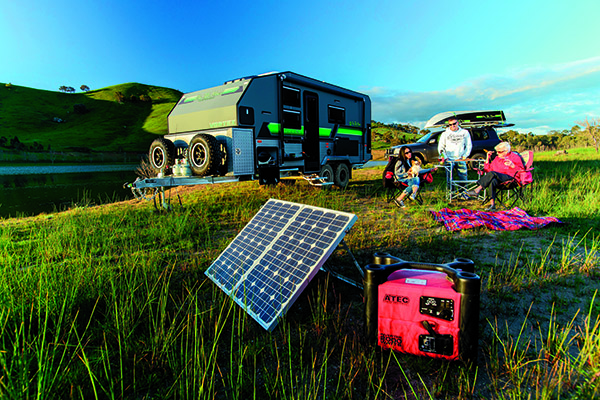Portable solar energy storage and traditional fuel generators are both used to provide power in various settings, but they operate using different mechanisms and have distinct characteristics that set them apart.
- Energy Source: Portable solar energy storage systems harness energy from the sun using photovoltaic panels, converting sunlight into electricity. Traditional fuel generators, on the other hand, rely on fossil fuels such as gasoline, diesel, or propane to produce electricity through combustion engines.
- Environmental Impact: Solar energy storage systems produce electricity without emitting greenhouse gases or other pollutants, making them a cleaner and more environmentally friendly option compared to fuel generators, which produce emissions that contribute to air pollution and climate change.
- Fuel Dependence: Solar energy storage systems rely solely on sunlight as their source of energy, making them independent of fuel supply and cost fluctuations. In contrast, traditional fuel generators require a constant supply of fuel, which can be subject to price fluctuations and availability issues, especially during emergencies or natural disasters.
- Noise and Maintenance: Portable solar energy storage systems operate quietly and typically have fewer moving parts, resulting in minimal maintenance requirements. Traditional fuel generators, however, can be noisy during operation and require regular maintenance, including oil changes, fuel refills, and engine servicing.
- Portability and Versatility: Portable solar energy storage systems are often lightweight, compact, and easy to transport, making them suitable for various outdoor activities, camping, and emergency power needs. Traditional fuel generators are also portable to some extent, but they require carrying and storing fuel, which can be cumbersome and potentially hazardous.
- Long-Term Cost: While the initial cost of portable solar energy storage systems may be higher compared to traditional fuel generators, they offer long-term cost savings as they do not require ongoing fuel expenses. In contrast, the operational cost of traditional fuel generators includes the cost of fuel, which can accumulate over time.
In summary, the main differences between portable solar energy storage and traditional fuel generators lie in their energy sources, environmental impact, fuel dependence, noise and maintenance requirements, portability, and long-term cost implications. The choice between these two options often depends on specific use cases, environmental considerations, and the need for a reliable and sustainable power supply.


